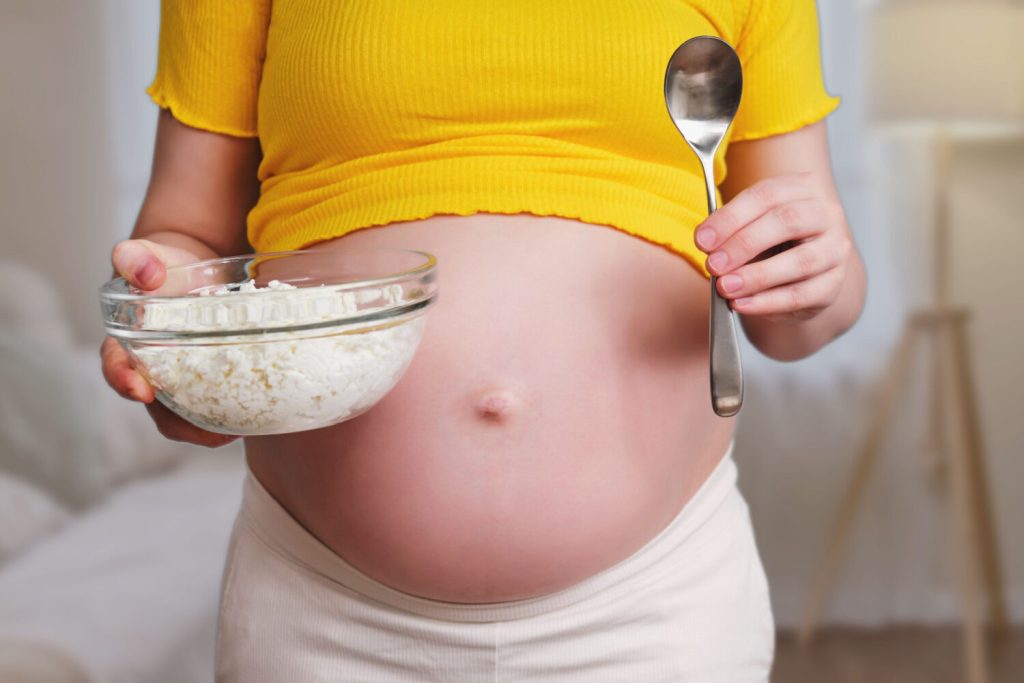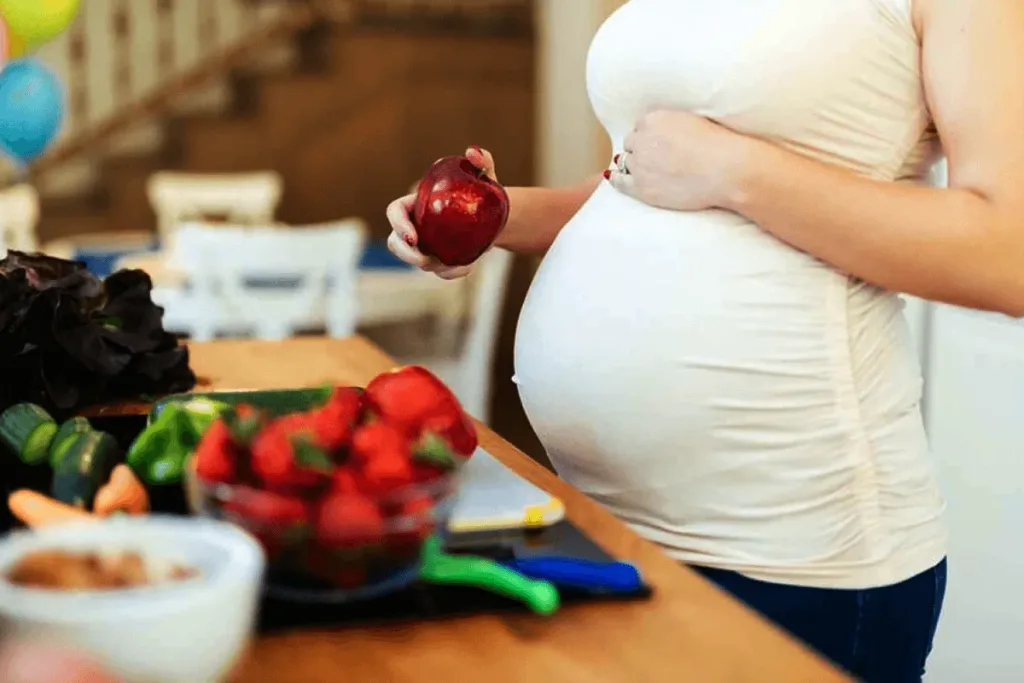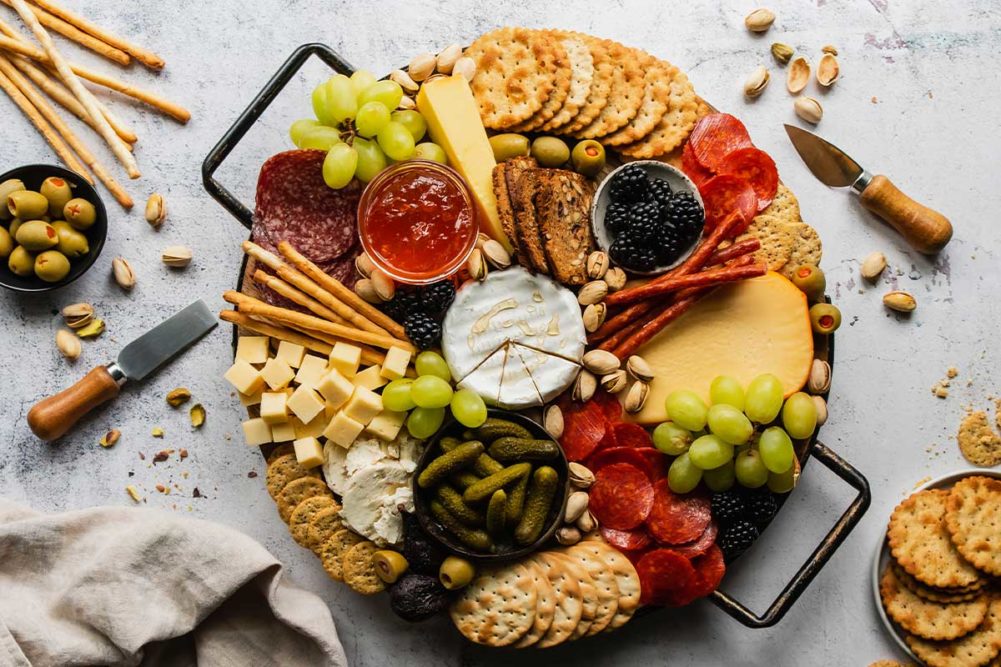Craving cheese during pregnancy? You are certainly not alone. Many expectant mothers find themselves irresistibly drawn to this delightful dairy product, and there are intriguing reasons behind these cravings.
This article delves into the hormonal changes and increased nutrient needs that contribute to cheese cravings, as well as the benefits they provide for both mother and baby.
We will also address potential risks and food safety concerns, recommend safe cheese options, and offer tips for managing those cravings in a healthy manner.
Join us as we explore everything you need to know about enjoying cheese while pregnant!
Why Pregnant Women Crave Cheese

Pregnant women frequently encounter strong cravings for cheese, a phenomenon that can be explained by hormonal changes, nutritional requirements, and the body’s instinct to seek out nutrient-rich foods.
During pregnancy, there is a heightened demand for essential nutrients such as calcium, protein, and other dietary macros to support both fetal development and the health of the mother.
Additionally, these cravings may be influenced by emotional eating and food aversions, rendering cheese—a comfort food known for its rich flavor and texture—especially enticing.
By understanding the underlying reasons for these cravings, women can more effectively manage them and maintain a balanced diet throughout their pregnancy.
Further reading: Craving Sour Candy During Pregnancy: Is It Safe?
Hormonal Changes and Nutrient Needs
Hormonal changes during pregnancy have a significant impact on dietary preferences and cravings. Many women experience a strong inclination towards foods rich in specific nutrients, such as cheese, which provides essential calcium and protein.
These hormonal fluctuations can lead to challenges in appetite regulation, making it difficult for expectant mothers to manage their cravings effectively. Cheese is particularly notable not only for its rich nutrient profile but also for its comforting qualities, often bringing a sense of emotional well-being.
For those who prioritize health in their dietary choices, incorporating cheese can satisfy cravings while delivering vital vitamins and minerals that are important for both the mother and the child. By understanding these hormonal influences, individuals can make more informed decisions and promote a balanced approach to nutrition during this transformative period.
The Benefits of Craving Cheese During Pregnancy

Incorporating cheese into a pregnancy diet can provide numerous health benefits. It offers essential nutrients that support both maternal and fetal health, making it a valuable addition to daily meals.
Important Nutrients for Both Mother and Baby
Cheese offers essential nutrients such as calcium, protein, and micronutrients that are vital for both maternal health and fetal development. These nutrients play a significant role in building strong bones and supporting overall growth.
The calcium found in milk or cheese is especially beneficial; it assists in developing the baby’s skeletal system, ensuring that bones are formed correctly and maintained throughout pregnancy. Additionally, the protein present in cheese supports the mother’s body during this critical time, aiding in tissue formation and helping to create the reserves necessary for breastfeeding.
Micronutrients, such as vitamin B12, which are plentiful in various types of cheese, contribute to the formation of red blood cells and support the baby’s neurological development. By including cheese in their diet, mothers can ensure they have an adequate intake of these macronutrients and micronutrients, fostering a healthy environment for their baby’s growth.
Further reading: Craving Fruit During Pregnancy? Here’s What It Means
Potential Risks of Consuming Cheese During Pregnancy
Cheese can be a nutritious option during pregnancy, but it is important to consider the potential risks associated with its consumption. It’s crucial to pay attention to food safety concerns and be mindful of the possibility of lactose intolerance.
Food Safety Concerns
Food safety is a crucial consideration when it comes to consuming cheese during pregnancy. Certain types of cheese, especially soft varieties, can pose risks if they are not pasteurized, while hard cheeses tend to be safer options.
Pregnant women should be particularly mindful of the cheeses they incorporate into their diets, as some varieties can harbor harmful bacteria, such as Listeria. Soft cheeses like feta, brie, and queso fresco are frequently made with unpasteurized milk, which increases the risk of foodborne illnesses. On the other hand, hard cheeses such as cheddar, gouda, and Parmesan are generally considered safer due to their lower moisture content and the fact that they are often pasteurized.
By prioritizing pasteurized options, expectant mothers can enjoy cheese while minimizing health risks for themselves and their unborn children.
Safe Cheese Options for Pregnant Women

For pregnant women, choosing safe cheese options is essential to safeguard both maternal health and the well-being of the fetus. It is generally recommended to consume pasteurized cheeses during this important time.
Recommended Types and Precautions
When considering cheese consumption during pregnancy, it is important for pregnant women to prioritize hard cheeses and pasteurized options, while also being mindful of cheese alternatives and necessary precautions.
In the realm of dairy, hard cheeses like cheddar and parmesan are often recommended due to their lower moisture content, which reduces the risk of harmful bacteria. This makes them safer choices during this sensitive time. Conversely, soft cheeses such as brie or feta should be avoided unless made from pasteurized milk, as they can pose risks.
For those with dietary restrictions or lactose intolerance, exploring alternatives like almond-based or coconut-based cheeses can be a delightful option that does not compromise safety. It is essential to read labels carefully to ensure that any products are free from unpasteurized ingredients and suitable for specific dietary needs, allowing expectant mothers to enjoy cheese with peace of mind.
Managing Cheese Cravings During Pregnancy

Managing cheese cravings during pregnancy can indeed be challenging. However, with the right strategies and a bit of awareness, it is possible to enjoy this beloved food in moderation while also exploring healthier alternatives.
Further reading: Why You’re Craving Sweets During Pregnancy & Healthy Tips
Tips for Moderation and Healthy Alternatives
Regarding managing cheese cravings, it is essential to prioritize moderation and consider healthier alternatives that can offer similar flavors and textures without compromising your health.
Incorporating portion control into your snacking routine can be quite effective in managing those intense cheese desires. For example, pre-portioning smaller servings of your favorite cheeses and pairing them with fresh fruits or whole-grain crackers can enhance the nutritional value of your snack.
Additionally, exploring alternatives such as cashew cheese or nutritional yeast can satisfy cravings without the extra calories or fats. Utilizing herbs and spices can also help mimic cheese’s savory essence, providing a flavorful experience without the guilt.
Embracing these strategies not only helps alleviate cravings but also promotes a balanced approach to snacking.
Frequently Asked Questions
Why do some pregnant women crave cheese?
Craving cheese during pregnancy is a common phenomenon due to hormonal changes and nutritional needs. Some pregnant women may also experience cravings as a result of their body's increased production of progesterone and estrogen.
Is it safe to eat cheese during pregnancy?
Yes, it is safe to eat cheese during pregnancy. However, it is important to choose pasteurized cheeses to avoid the risk of foodborne illnesses. Soft cheese, blue cheese, and unpasteurized cheese should be avoided during pregnancy as they may contain harmful bacteria.
What types of cheese are safe to eat during pregnancy?
Pasteurized hard cheese, such as cheddar, Swiss, and Parmesan, are safe to eat during pregnancy. These types of cheese are less likely to contain harmful bacteria. Cottage cheese and cream cheese are also safe options.
Can eating too much cheese during pregnancy harm my baby?
Eating too much cheese during pregnancy can lead to excessive weight gain and increase the risk of high blood pressure and gestational diabetes. It is important to consume cheese in moderation and balance it with a healthy diet.
Can craving cheese be a sign of a nutrient deficiency during pregnancy?
In some cases, craving cheese during pregnancy can be a sign of a nutrient deficiency, specifically calcium. It is important to speak with your doctor about your cravings and ensure that you are getting enough essential nutrients for a healthy pregnancy.




